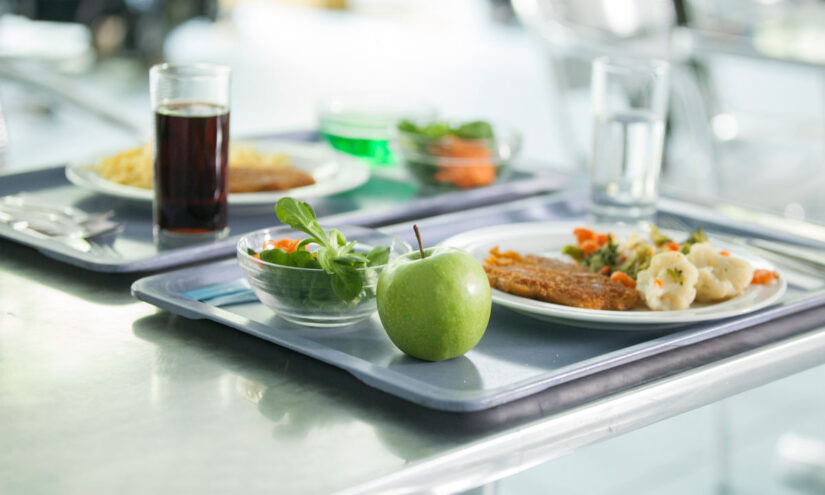During this summer, a team of students from MIT embarked on a journey to the sou …
Newark Coalition Takes Action to Improve School Lunches Following Parent Feedback
Carlos Changemaker

The Coalition for Healthy Food in Newark Schools has a vision for improving the school food system, which includes implementing school gardens, offering culturally diverse food options, and catering to students’ dietary restrictions and preferences. This ambitious plan could become a reality with the help of a generous $3.8 million grant from Novo Nordisk, a healthcare and pharmaceutical company.
As stated in a press release, the coalition’s first year of implementation will focus on various initiatives such as expanding school gardens, fostering partnerships with local farmers, and enhancing in-school nutrition education.
Over the course of three years, the coalition will utilize the funding to address the most pressing needs identified during the baseline assessment conducted in the first year.
Newark families have expressed discontent with the quality of school meals, often citing processed and unhealthy options. The coalition’s efforts aim to address these concerns and bring about positive changes.
Offically launched on Oct. 26, the Coalition for Healthy Food is led by the Greater Newark Conservancy and collaborates with partners such as Common Market, FoodCorps N.J., Newark Beth Israel Medical Center, R.W.J. Barnabas Health, United Way of Greater Newark, and the Urban Agriculture Cooperative.
Since 1987, the Greater Newark Conservancy has been actively working towards promoting environmental, social, and racial justice in the Newark community. Through events focused on nutrition education, community garden initiatives, and a farm stand open to the public from July to October, the conservancy has discovered that families in Newark are generally dissatisfied with the meals served in public schools.
Opinions about Newark’s school breakfast and lunch programs have been mixed. While families have voiced concerns regarding processed and unhealthy meals, the N.J. Department of Agriculture has commended Newark’s meal services on multiple occasions.
In a September press release, Rose Chamberlain, the director of the N.J. Department of Agriculture’s food and nutrition division, stated, “The Newark Public School District sets an excellent example of how a high-quality school lunch program can work.”
However, in October 2021, just before the N.J. Department of Agriculture praised Newark’s food programs, parents expressed dissatisfaction with the lunch options for their children, leading to an online petition.
With the coalition’s establishment, there is hope that some of the parents’ demands will be addressed and resolved.
Between August and October of this year, the coalition conducted a survey involving a sample of 100 community members, students, school staff, and food providers. The survey revealed that the most requested change was the availability of “from-scratch” food in student lunches. Respondents also highlighted issues with the frequency of heavily processed meals, the lack of culturally reflective meals, inadequate nutritional education, and limited access to green space or gardens.
Natasha Dyer, the executive director of the Greater Newark Conservancy, shared that the Novo Nordisk funding will be strategically allocated over the next three years, with approximately 50% of the funds reinforcing existing programs and the remaining 50% supporting the piloting of new initiatives.
Currently, the coalition’s work will be concentrated in specific schools, including Hawthorne Avenue, Avon Avenue, Mt. Vernon, Lincoln, McKinley Elementary, Thirteenth Avenue, Harriet Tubman, and Peshine Avenue. However, Dyer mentioned that the coalition has the flexibility to adjust plans as necessary. The first year will be dedicated to program assessment and identification of effective strategies to influence policies district-wide.
Sarah O’Leary, the director of youth and family education at the Greater Newark Conservancy, hopes that the coalition’s efforts will ignite students’ enthusiasm for health and nutrition. O’Leary emphasized the positive impact of exposing children to healthy foods through taste tests in the cafeteria, particularly seasonal vegetables that may be new to them. These experiences have the potential to influence healthier eating habits not only at school but also at home.
Additionally, O’Leary highlighted the value of community gardens in promoting nutritious eating. Being involved in growing their own food can be an exciting and educational experience for students, especially when paired with an understanding of the benefits of local produce.
This story was originally published in Chalkbeat. Chalkbeat is a nonprofit news site covering educational change in public schools.


